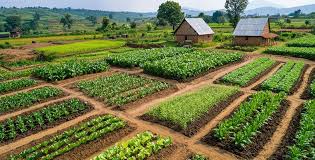By Felicia Imohimi
The Federal Government says it is committed to increasing crop yields sustainably by developing climate-resilient and disease-tolerant crops that can withstand pests, diseases, and extreme weather conditions.
The Minister of State for Agriculture, Sen. Aliyu Abdullahi, gave the assurance at the opening of the 47th Regular Meeting of the National Council on Agricultural and Food Security (NCAFS) in Kaduna.
The 2025 NCAFS has “Food Sovereignty and Food Security in an Era of Renewed Hope”, as its theme.
Abdullahi said the government was addressing the pressing challenges facing Nigeria’s agricultural sector by providing a clear policy direction and a roadmap for the strategic implementation of key programmes and projects.
He listed these programmes to include the recapitalisation of the Bank of Agriculture (BOA), the Renewed Hope Agricultural Mechanisation Programme, and the Dry Season Initiative targeting all-year-round farming on 500,000 hectares.
According to him, the government is also making farm inputs more accessible and affordable, while strengthening gender-responsive extension services, credit access, and training on climate-smart farming and mechanisation.
The minister said government had also adopted the Renewed Hope Cooperative Reform and Revamp Programme, a comprehensive framework with seven strategic pillars designed to reposition the cooperative sector for financial inclusion and agricultural development.
“It is pertinent to note that our country has opportunities to radically transform its food production systems and contribute more to regional food security,” he said.
He noted that Nigeria, with the largest agricultural potential in West Africa, aimed to reduce import dependence, strengthen market confidence, and revive agribusiness to position itself as a leading food supplier in the sub-region.
Abdullahi said the meeting was convened to propose actions that would strengthen national solidarity in the fight against hunger, malnutrition, and poverty, while advancing food and nutrition security.
He said the government’s efforts aligned with President Bola Tinubu’s Renewed Hope Agenda, aimed at achieving food sovereignty and food security for the nation.
“To attain food self-sufficiency, we must reach the full production potential of major staple crops such as maize, wheat, sorghum, millet, soybean, cassava, yam, cowpeas, and potatoes,” he said.
The minister stressed the need to prioritise climate-smart agriculture, which he said would sustainably increase yields while advancing adaptation and mitigation goals in crop, livestock, and fisheries production. (NAN)(www.nannews.ng)
Edited by Tosin Kolade












